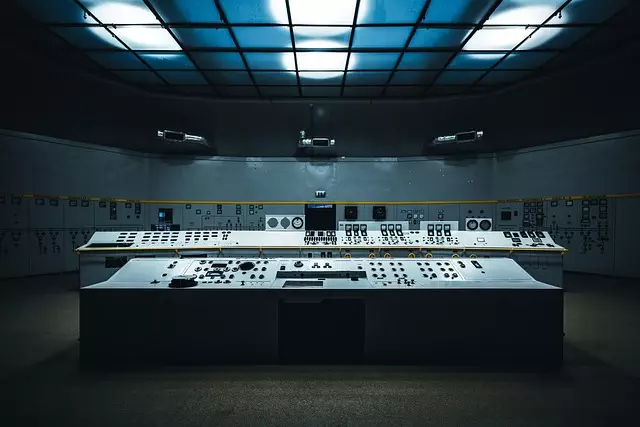Commercial insect removal is a critical component for businesses to maintain hygiene, customer satisfaction, and reputation. Infestations from ants, termites, roaches, and flies pose health risks, damage property, disrupt operations, and lead to financial losses. Effective insect control services target these issues, preventing long-term damage and ensuring business continuity. When choosing a service, prioritize safety, environmental friendliness, proven success records, and tailored prevention strategies. Modern methods like Integrated Pest Management (IPM) and digital tools enhance efficiency while adhering to legal regulations. Case studies demonstrate significant improvements in food safety, customer satisfaction, and employee productivity through professional insect control services.
Commercial insect removal is a critical aspect of maintaining healthy, productive workspaces. Understanding the importance of professional insect control is essential for businesses aiming to protect their reputation and ensure smooth operations. This article delves into various facets of commercial insect management, including common pests, impact on business, choosing the right services, modern techniques, legal compliance, and successful case studies. Discover how effective insect control services can revolutionize your commercial space.
Understanding Commercial Insect Removal: Why It Matters for Businesses

Commercial insect removal is a critical aspect of pest management that every business should consider, regardless of its size or industry. It involves specialized insect control services designed to address and prevent infestations in commercial spaces, such as offices, retail stores, food establishments, and warehouses. These services are crucial for maintaining a hygienic environment, ensuring customer satisfaction, and upholding the reputation of the business.
Insects can cause significant damage to commercial properties and assets. They can transmit diseases, contaminate food sources, and even lead to structural damage over time. Moreover, insect presence can negatively impact employee productivity and customer experience, resulting in financial losses for businesses. Effective insect control services are therefore essential to mitigate these risks, providing a clean, safe, and welcoming environment for both employees and patrons.
Common Insects That Require Professional Control in Commercial Spaces

In commercial spaces, a variety of insects can pose significant challenges due to their high population densities and potential impact on operations. Common pests that require professional insect control services include ants, termites, roaches, and flies. Ants are highly organized and can quickly invade food areas, causing disruptions and health hazards. Termites, though often overlooked, can cause substantial structural damage over time, making professional intervention crucial for their eradication.
Roaches are not only a health risk but also a major source of distress for customers and employees. They multiply rapidly and can survive in harsh conditions, necessitating expert insect control services to eliminate them completely. Flies, particularly in food service areas, pose significant health risks by carrying diseases and pathogens. Timely and effective insect control services are essential to maintain a clean, safe, and productive commercial environment.
The Impact of Insect Infestations on Business Operations and Reputation

Insect infestations can significantly disrupt business operations, causing both immediate and long-term damage. Pests like ants, termites, or moths can infiltrate commercial spaces, leading to unsanitary conditions and potential safety hazards. In food service industries, for instance, even a single insect sighting can result in health code violations, leading to temporary closures and loss of reputation. Reputational damage extends beyond fines; it includes the impact on customer trust and loyalty, which are vital for any business’s success.
Moreover, commercial insect removal is crucial for maintaining a professional image. Regular pest problems suggest negligence in hygiene standards, reflecting poorly on the company’s brand perception. Effective insect control services become an investment in not just eliminating current infestations but also preventing future ones. This proactive approach ensures that businesses can focus on their core operations without interruptions and maintain customer satisfaction.
How to Choose the Right Insect Control Services for Your Commercial Property

When selecting insect control services for your commercial property, it’s crucial to consider several factors. Look for companies that specialize in commercial insect removal and have a proven track record of success. Ask about their methods and products to ensure they’re safe and effective, especially if you have concerns about environmental impact or the health of your employees and customers.
Research their reputation, licensing, and certifications to verify their professionalism. Read reviews from past clients and ask for references. Additionally, inquire about their prevention strategies and ongoing maintenance plans. The best insect control services will offer tailored solutions that address current infestations while also providing long-term protection against future pest problems.
Modern Techniques and Technologies in Commercial Insect Management

In the realm of commercial insect removal, modern techniques and technologies have revolutionized insect control services. Integrated Pest Management (IPM) is a game-changer, employing strategic methods that go beyond mere chemical application. This approach prioritizes eco-friendly practices, utilizing advanced tools like heat treatment, cold applications, and innovative traps to eliminate pests effectively while minimizing environmental impact.
Additionally, the integration of digital solutions has enhanced insect control services. Monitoring systems equipped with sensors and cameras provide real-time data on pest activity, enabling professionals to identify infestations early. Precision spraying technologies ensure targeted treatments, reducing waste and limiting exposure to non-target organisms. These modern techniques not only improve efficiency but also foster a more sustainable approach to insect management in commercial settings.
Legal Considerations and Compliance for Effective Insect Removal Practices

When it comes to commercial insect removal, understanding legal considerations and compliance is paramount for effective insect control services. Each region has specific regulations regarding pest management, including the use of chemicals, disposal methods, and record-keeping requirements. Businesses providing insect control services must stay up-to-date with these laws to ensure they’re operating within the boundaries set by local, state, and federal authorities.
Non-compliance can lead to hefty fines, legal repercussions, and damage to a business’s reputation. Professional pest control companies invest in ongoing training and education to stay informed about changing regulations. They also implement robust internal policies and procedures to ensure their practices align with legal standards, thereby offering clients peace of mind and the assurance that their insect removal efforts are both effective and compliant.
Case Studies: Successful Insect Control in Commercial Settings

In the commercial realm, effective insect control is not just about aesthetics; it’s a critical component of maintaining a safe and productive environment. Case studies across various industries demonstrate the power of professional insect removal services. For instance, in food service establishments, tailored insect control strategies have successfully eliminated infestations of common pests like ants and flies, ensuring food safety and minimizing customer dissatisfaction.
Similarly, commercial office buildings have benefited from proactive insect management. By implementing integrated pest management (IPM) programs, these businesses have seen significant reductions in spider populations and other arachnid intruders, enhancing employee comfort and productivity. These success stories highlight the importance of working with experienced professionals who understand the unique challenges posed by different commercial spaces and can deliver targeted, sustainable insect control solutions.
